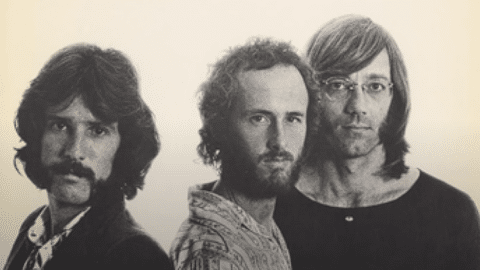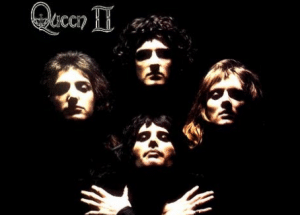10 Career-Destroying Albums for Legendary Artists

via The Doors / Youtube
The recording studio can be a playground for artists to express themselves creatively, but sometimes, even legendary artists produce albums that disappoint their fanbase. These albums, such as U2’s “Songs of Innocence” and Oasis’ “Be Here Now,” not only failed to resonate with fans but also had a lasting negative impact on the artists’ careers. While some artists, like Fiona Apple, can still earn acclaim despite sporadic releases, the albums on this list derailed the momentum of these once highly sought-after musicians.
Legendary artists are not immune to producing albums that fail to meet expectations. Whether due to internal conflicts, creative tensions, or misguided decisions, these albums had a detrimental impact on the careers of once highly revered musicians. However, it’s important to note that even with career-damaging albums, artists can often rebound and continue to create exceptional music that resonates with their fanbase.
“Songs of Innocence” – U2
U2’s “Songs of Innocence” suffered from a delivery problem rather than musical quality. The album was force-fed to millions of listeners’ iPods without their consent, creating a backlash. Although the album itself was solid, the controversial release method overshadowed its merits, leading many fans to lose faith in the band.
“Other Voices” – The Doors
Following the death of frontman Jim Morrison, The Doors attempted to continue as a band with keyboardist Ray Manzarek on lead vocals. However, the magic that Morrison brought to their music was absent, and the album lacked the captivating aura and swagger that defined the band’s sound. Without Morrison’s presence, The Doors became a lackluster version of their former selves.
“Mardi Gras” – Creedence Clearwater Revival
Creedence Clearwater Revival’s prolific output in the 1960s made them beloved by both rock and country fans. However, tensions within the band led to the ill-fated experiment of democratic songwriting on “Mardi Gras.” Without the songwriting prowess of John Fogerty, the album faltered, featuring subpar songs that failed to measure up to the band’s earlier work. Fogerty’s lackluster contributions and cover songs further diminished the album’s quality.
“The Wall” – Pink Floyd
While Pink Floyd’s “The Wall” is considered a masterpiece of prog rock, its creation marked the beginning of the end for the band. Roger Waters took control of the album’s production, causing tensions within the group. The departure of Richard Wright and the subsequent tour tore Pink Floyd apart, leading to Waters’ solo career and the eventual disintegration of the band’s magic.
“Mezmerize/Hypnotize” – System of a Down
System of a Down’s albums “Mezmerize” and “Hypnotize” showcased the band’s unique blend of metal, alternative music, and political themes. However, lead vocalist Serj Tankian has mentioned feeling pressured and unable to contribute with full enthusiasm. The creative tension led to the band’s subsequent hiatus, leaving fans waiting for new music for nearly two decades.
“Second Coming” – The Stone Roses
The Stone Roses’ debut album defined the Britpop movement, but their sophomore effort, “Second Coming,” failed to capture the same magic. Internal conflicts during the recording process resulted in a bloated album with lengthy songs that lacked the payoff of their earlier work. The departure of drummer Reni shortly after the album’s release signaled the beginning of the end for the band.
“Just Push Play” – Aerosmith
Aerosmith’s desire for continued success after the hit song “I Don’t Want To Miss a Thing” led to the misguided album “Just Push Play.” While the album featured epic production, it lacked the gritty essence that defined the band’s early work. Steven Tyler’s attempt to incorporate various pop trends resulted in an album that felt disconnected from Aerosmith’s authentic sound.
“Cut the Crap” – The Clash
Following the punk wave, The Clash released their final studio album, “Cut the Crap,” which proved to be a disappointment for fans and critics alike. The album suffered from poor production, lackluster songwriting, and the absence of key members Mick Jones and Topper Headon. It lacked the raw energy and social commentary that defined The Clash’s earlier work, tarnishing their reputation as punk pioneers.
“Be Here Now” – Oasis
For a fleeting moment, it looked like Oasis would take over the world in the 1990s. After coming off two blockbuster albums, the Gallagher brothers’ ability to write classics was only matched by their animosity towards each other. While Noel Gallagher had expected his name to go down with the likes of John Lennon and Paul McCartney, “Be Here Now” is where things come to a screeching halt.
“St. Anger” – Metallica
Metallica’s “St. Anger” marked a significant departure from their signature sound. The album featured a raw, unpolished production style and an absence of guitar solos, which left many fans feeling alienated. The band’s internal tensions during the recording process also seeped into the music, resulting in a disjointed and anguished album. While Metallica has since bounced back with later releases, “St. Anger” remains a low point in their discography.





















